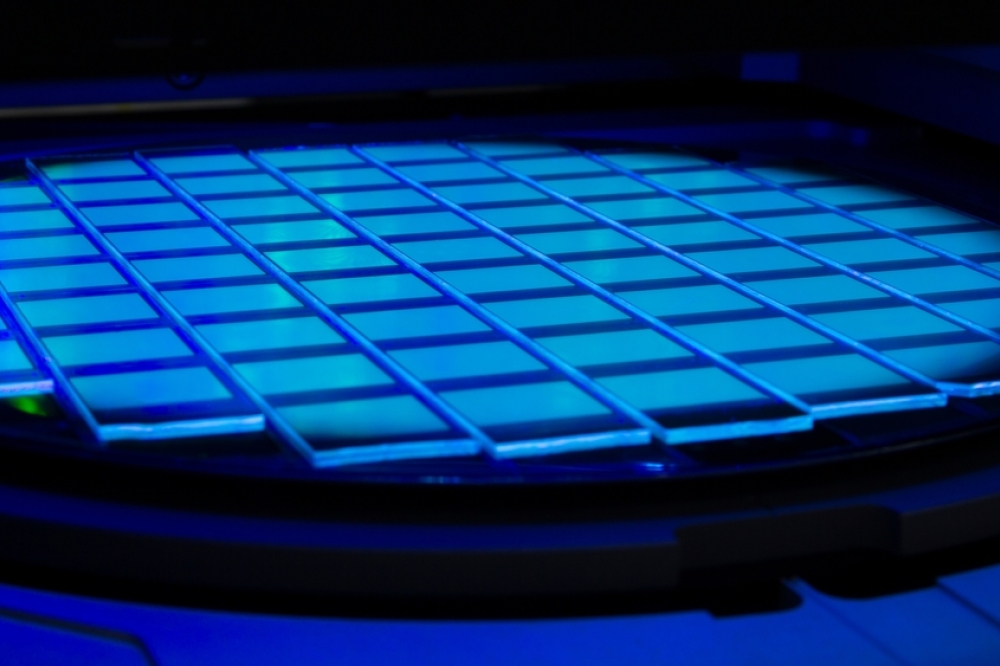Intel and German Government reach Magdeburg agreement

Agreement accounts for Intel’s expanded investment to build two leading-edge semiconductor facilities in Germany.
Intel and the German federal government have signed a revised letter of intent for Intel’s planned leading-edge wafer fabrication site in Magdeburg, the capital of Saxony-Anhalt state in Germany. The agreement encompasses Intel’s expanded investment in the site, now expected to be more than 30 billion euros for two first-of-a-kind semiconductor facilities in Europe, along with increased government support that includes incentives, reflecting the expanded scope and change in economic conditions since the site was first announced.
Intel acquired the land for the project in November 2022, and the first facility is expected to enter production in four to five years following the European Commission’s approval of the incentive package. Given the current timeline and scale of the investment, Intel plans to deploy more advanced Angstrom-era technology in the facilities than originally envisioned. The Magdeburg site will serve Intel products and Intel Foundry Services customers.
“Building the ‘Silicon Junction’ in Magdeburg is a critical part of our strategy for Intel’s growth. Combined with last week’s announcement of our investment in Wrocław, Poland, and the Ireland sites we already operate at scale, this creates a capacity corridor from wafers to complete packaged products that is unrivaled and a major step toward a balanced and resilient supply chain for Europe,” said Intel CEO Pat Gelsinger. “We’re grateful to the German federal government, Chancellor Olaf Scholz and the government of Saxony-Anhalt for their partnership and shared commitment to fulfilling the vision of a vibrant, sustainable, leading-edge semiconductor industry in Germany and the EU."
Chancellor Olaf Scholz of Germany said, “Today’s agreement is an important step for Germany as a high-tech production location – and for our resilience. Intel's semiconductor production in Magdeburg is the single largest foreign direct investment in German history. With this investment, we are catching up technologically with the world’s best and expanding our own capacities for the ecosystem development and production of microchips. This is good news for Magdeburg, for Germany and for all of Europe.”
Vice Chancellor and Federal Minister for Economic Affairs and Climate Action Robert Habeck said, “Today's agreement is a milestone for Germany as a location for innovation and investment, for jobs, resilience and competitiveness. Intel's investment will raise semiconductor production in Germany to a new level and is an important contribution to growing European sovereignty.”
Intel’s investment will drive significant economic benefits not only in Magdeburg and Saxony-Anhalt, but across the country and throughout the European Union. Along with Intel’s existing wafer fabrication facility in Ireland and its recently announced assembly and test facility in Poland, the new wafer fabrication site in Magdeburg will create a first-of-its-kind, leading-edge end-to-end semiconductor manufacturing value chain in Europe, serving European customers and helping to fulfill the EU’s ambitions for a more resilient semiconductor supply chain.
“Congratulations to Intel on further expansion here in Germany. Siemens is proud to collaborate with Intel to accelerate the semiconductor ecosystem in Europe. We are a key technology partner for this industry, supporting manufacturers to scale and build more resilient supply chains,” said Roland Busch, president and CEO, Siemens AG.
The Silicon Junction will serve as the connection point for other centers of innovation and manufacturing across the country and region, promoting the development of a broad ecosystem of suppliers and companies across the technology industry. The site is expected to create 7,000 construction jobs over the course of the first phase of the build, approximately 3,000 permanent high-tech jobs at Intel and tens of thousands of additional jobs across the industry ecosystem.
Intel is committed to developing the Silicon Junction in line with its 2030 sustainability goals, including achieving net positive water use by conserving, recycling and reclaiming water, and funding local water projects that help restore more freshwater than Intel facilities consume. In addition, Intel has set goals to power its global manufacturing operations with 100% renewable energy and to achieve zero total waste to landfills.
Germany has world-renowned universities and technical training programs and a tradition of innovation and engineering that have made it home to some of the world’s most successful and admired companies, including many of Intel’s most important customers and partners. As it does in its other major sites around the world, Intel plans to work closely with local universities, research institutions and training programs to further develop a diverse workforce that can make the site successful and help grow the overall pool of innovators, entrepreneurs and visionaries that will advance Europe’s digital and green future.

































